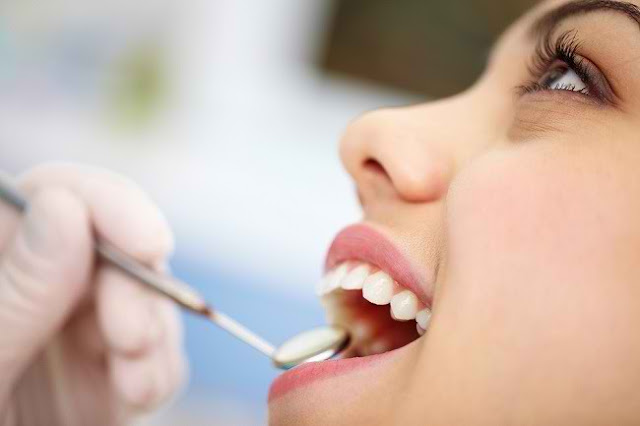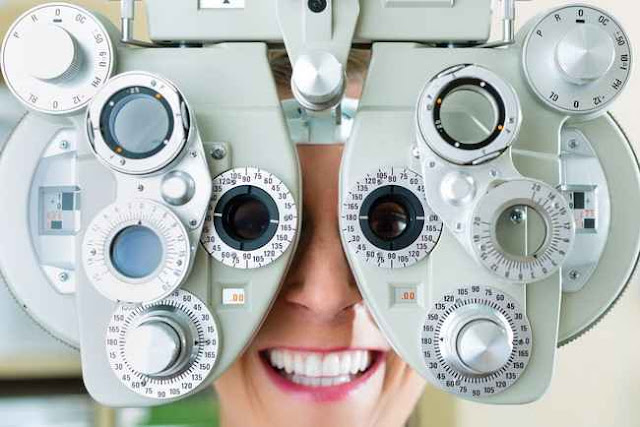Getting to Know the Dentist and When to Check Teeth
Dentist is a doctor who specializes in the study of health and dental and oral diseases. A dentist has the competence or expertise in diagnosing, treating, and providing education about the prevention of various oral, dental, and oral health problems.
Many people assume that they only need to see a dentist when they are experiencing complaints in their teeth and mouth. In fact, dental and mouth checks need to be routinely done at least 2 times a year even though there are no complaints or disorders of the teeth and mouth that are felt.
Some health problems or complaints about teeth and mouth that can be handled by a general dentist include:
- Tooth ache.
- Cavity.
- Tooth dislodged or dated.
- Tooth and gum infections.
- Bad breath.
- Teeth do not grow or impact teeth.
Dentist Specialization Category
Some dentist specialization branches in Indonesia include:1. Endodontist or Dental conservation specialist (Sp. KG)
Endodontists are specialist dentists who have special competence and expertise in the prevention, diagnosis, and treatment of problematic pulp and root teeth. The pulp is the inner layer of teeth that is rich in blood vessels and nerves. Your general dentist will refer you to endodontics if you have problems with the pulp and tooth root, such as pulp polyps, root canal infection, or pulpitis, a bacterial infection of the pulp that causes pain and can occur in more than one tooth.2. Oral disease specialist (Sp. PM)
Oral disease specialists are dentists who specialize in more specific cases of dental and mouth disease. Some diseases that need to be addressed by oral dentists include:- Oral and tongue cancer, for example Kaposi's sarcoma.
- Bacterial, fungal, or viral infections of the mouth.
- Autoimmune diseases that attack the gums and mouth, such as oral lichen planus and pemphigus vulgaris.
- Canker sores that are severe and recurrent.
3. Oral surgery specialist (Sp. BM)
To get the title of a dentist in oral surgery, a dentist needs to complete a specialization in oral surgery for approximately 6 years. You will be referred to an oral surgeon if your dental, gum, tongue, or mouth problems require surgery. Health problems or medical procedures that require specialist treatment of oral surgery include:- Tumors of the teeth, gums and tongue.
- Oral biopsy.
- Reconstructive surgery to treat jaw and tooth fractures.
- Harelip.
- Abscesses in teeth and mouth.
- Oral infection.
4. Orthodontist or orthodontist specialist (Sp. Ort)
Orthodontists refer to dentists who specialize in diagnosing and correcting the shape of teeth that are less neat or parallel, for example due to congenital abnormalities and malocclusions. Orthodontist specialists have expertise in the area of incremental placement and treatment of braces to make teeth in the right positions and look neater.5. Periodontist or periodontist (Sp. Perio)
Periodontist is a doctor who specializes in gum disease and dental bones. Some conditions that can make you referred to a periodontist, namely gingivitis and periodontitis.6. Pedodontist or pediatric dentist (Sp. KGA)
Pedodontists are specialist dentists who specialize in dealing with a variety of dental and oral problems in children, infants, and adolescents. If your child has a messy tooth shape, teeth dislodged, crooked teeth, cavities, dental infections or rotten teeth, it is advisable to treat it to a dentist specialist in pediatric dentistry.7. Prosthodontist (Sp. Pros)
Your general dentist will refer you to a prosthodontist if you need to have artificial teeth or dentures installed. In addition, prosthodontist specialists can also perform dental crowns and dentures implants. You may need to install dentures if your teeth are broken, dislodged, or seriously injured so that they cannot function properly.When to Check Teeth?
In children aged 6 months to 1 year, dental examinations must have been carried out since the first teeth appeared. Then for children over one year to adolescents, dental examinations need to be done routinely at least every 6 months. While for adults, the frequency of examination is determined according to the condition of the teeth. However, the average adult does a dental check every 6 months. A dental check also needs to be done immediately if there are symptoms or disorders of the following teeth, gums, and mouth:- Tooth ache.
- Sensitive teeth.
- Gums ache or bleed.
- Sprue that does not improve.
- Bad breath.
- Jaw aches or sounds when stretched.
- Dry mouth.
- Cracked or dislodged teeth.
- There are lumps on the gums, tongue, or mouth.




Comments
Post a Comment